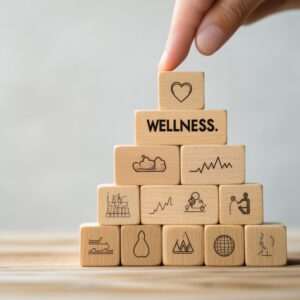By: Ellie Wardell
My name is Ellie, a new AM athlete signing this past June. SO happy to be part of this team and represent its message. A little bit about me: I was a former collegiate soccer player at Winona State University, now chasing new athletic adventures through endurance sports. Since graduating undergrad in 2023, I have taken up marathon running and began cycling in Summer of 2024. Now, I have signed up for my first triathlon, set to take place on June 26th!
For my first blog post, I have decided to share my journey of qualifying for the Boston Marathon 2026.
I’ve had my eyes on Boston ever since I started marathon racing in 2023. From the moment I crossed the finish line at my first race in Eau Claire, Wisconsin, I knew I was hooked—and that qualifying for the Boston Marathon was a goal worth chasing.
 My first marathon was a rude awakening to 26.2 miles we raced in below freezing conditions with sleet and 20 mph winds. Eau Claire is also known for their hills, which I was not prepared for. I only consumed 3 gels and did not carry water with me on the course. I was cold, underprepared, under fueled and dehydrated. However, crossing that finish line made the 16 weeks of preparation and 3 hours and 47 minutes of grit worth it. Found by friends armed with Coke and a banana, I was collapsed on a near-by wall, soaked with sleet, and sweat, hair knotted, and face crusted over with dried salt experiencing the epitome of life’s simplicity. I became addicted that day; addicted to the to the process and true exhaustion, to the shear emotion of crossing the finish line and seeing loved ones there to support me and to the massive endorphin rush from mile 1 to 26.2.
My first marathon was a rude awakening to 26.2 miles we raced in below freezing conditions with sleet and 20 mph winds. Eau Claire is also known for their hills, which I was not prepared for. I only consumed 3 gels and did not carry water with me on the course. I was cold, underprepared, under fueled and dehydrated. However, crossing that finish line made the 16 weeks of preparation and 3 hours and 47 minutes of grit worth it. Found by friends armed with Coke and a banana, I was collapsed on a near-by wall, soaked with sleet, and sweat, hair knotted, and face crusted over with dried salt experiencing the epitome of life’s simplicity. I became addicted that day; addicted to the to the process and true exhaustion, to the shear emotion of crossing the finish line and seeing loved ones there to support me and to the massive endorphin rush from mile 1 to 26.2.
That first race taught me a lot. I didn’t qualify, but I came away with some key lessons to be learned and applied to future races. Adapting and improving every day is the name of the game; how do I get to be 1% better each day, which snowballs into achieving my dream. I didn’t hit my BQ time, but I sure became hungry to prove to myself that I could earn a spot on that iconic Massachusetts course next year.
My next race was May 2024 at the Zeigler Kalamazoo Marathon. I moved to Kalamazoo the summer of 2023 due to starting grad school at WMU. Race preparation looked a little different this time: I built a 20-week training plan straight from the Boston Marathon website. I followed it closely—weekly rest days, a mileage cap, speed work 2–3 times per week, and hill training 1–2 times a week. Since moving to Kalamazoo, I had also grown my community of running buddies, which made the training miles something I looked forward to. I focused on fueling, rest, and strength training 2-3 times a week. All of which allowed me to be injury-free and avoid bonking late in the cycle. It was essential that I planned each day to ensure that I was able to juggle 20 credits with trainings, social outings, volunteering, working and me-time. It’s safe to say that I filled my calendar and school planner, leaving no available space.
Race day came in a blink of an eye. I awoke around 4am to start carb loading and caffeine dosing before crossing the start at 7am in Downtown Kalamazoo. I had a pit crew that road on bikes around the course, cheering me on and providing feedback on my progress towards my goal time of 3:30. I carried a water bottle, crushed 5 gels and ate hills for breakfast, leaving no crumbs. With the last 10k to go I needed to drop 2 minutes to cross the finish with a BQ time. I switched into gear and left everything out on the course. I finished with a BQ time of 3:27. Come to find out, it wasn’t enough to secure a spot for April 2025 due to field size limits. Being so close—yet still falling short was a punch in the gut but added fuel to the fire.
Next up: the Bayshore Marathon in Traverse City. I selected this race due the shear speed of the course that takes you around the iconic Michigan lakeshore. My goal for Bayshore was to run a 3:15. Well, I could have had a better start to my training block; I came down with COVID my first week of training which took the air right out of my lungs. I was on a no running protocol for a week took another week to recover. By week 4, was back to it. I used the same training framework from last year but adjusted my paces to match my goal of averaging 7:30 per mile. I trained with faster runners, challenged myself in every workout, and stayed committed.
During this block I found myself to be physically and mentally stronger. I ran smarter, paying attention to how my body felt each day; honoring my easy run paces, and pushing it hard when it counted—during simulations, tempos, and mile repeats. When race eve arrived, I felt ready and confident. The two pieces of sour dough toast and two servings of spaghetti was the perfect cap off to the night. Wakeup call was at 4:30am to get to the bus at 6:30am for pick up. Start time was 7:15am, enough time to sneak a few pre-race photos and say hi to my family. My plan was to stick with the 3:15 pacer group, not letting them out of my sight. I ran Bayshore beautifully. Again, I brought along my emotional support water bottle, downed 5 gels, and made friends along the course which made the miles fly by. I finished the race strong crossing the finish line in 3:14 with energy still left in the tank. No second guessing, no narrow margins—I officially punched my ticket to Boston 2026. The sheer joy and sense of accomplishment I felt when I walked through the shoot brought me to tears. To celebrate with friends and family made this accomplishment that much sweeter and a life-long memory.
The application process opens in September, and my official Boston training begins in December.






 Athletic Mentors
Athletic Mentors